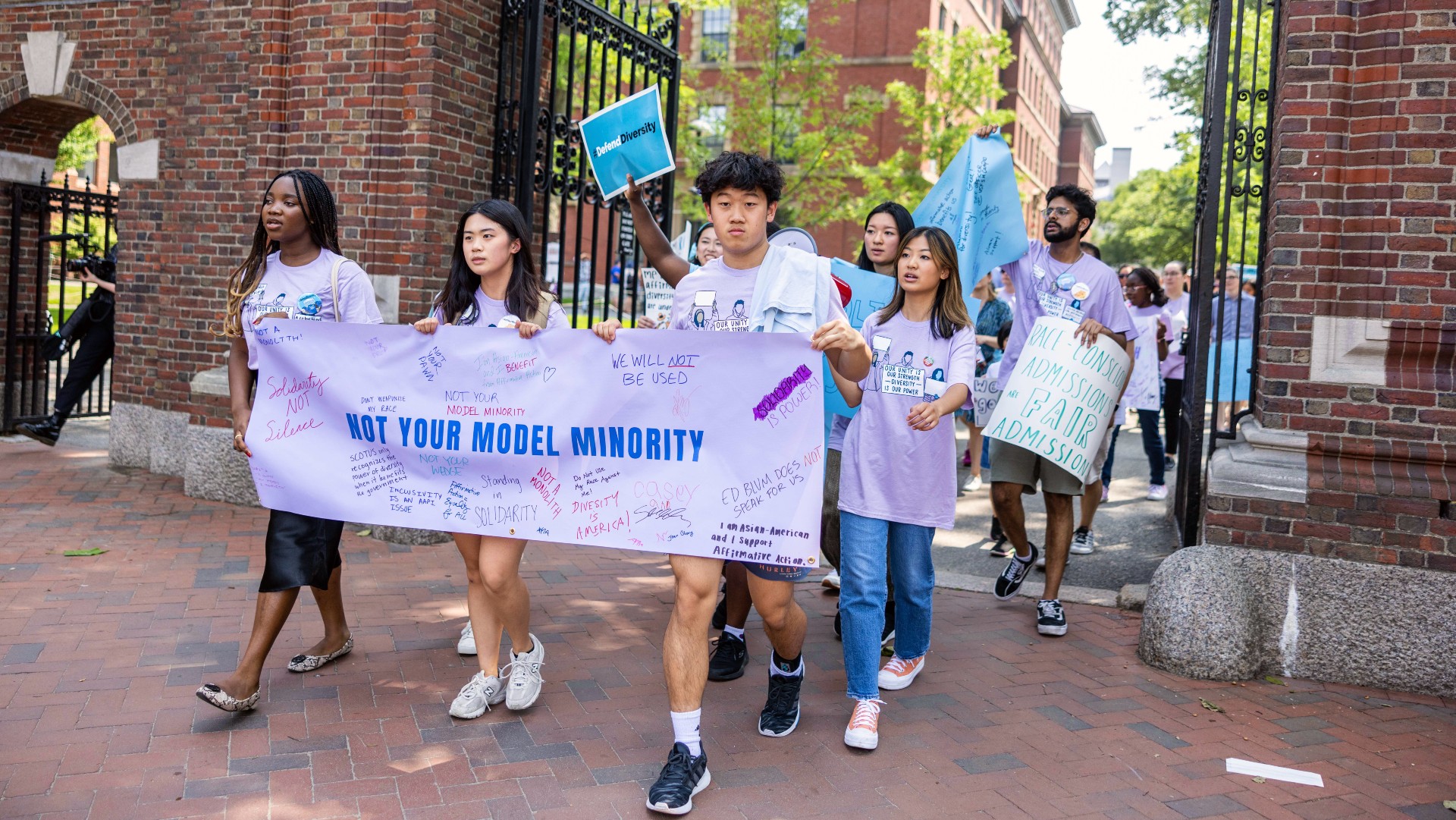Supreme court closes door on affirmative action in university admissions
Race-based admissions were an unpopular measure for tackling inequality in America

A free daily email with the biggest news stories of the day – and the best features from TheWeek.com
You are now subscribed
Your newsletter sign-up was successful
For decades, the admissions policies of many prestigious US universities have been deliberately skewed to increase the number of black students. And with very good reason, said Jerome Karabel in The New York Times.
As President Lyndon B. Johnson put it in a 1965 speech laying out the basis for so-called affirmative action: “You do not take a person who, for years, has been hobbled by chains and liberate him, bring him up to the starting line of a race and then say, ‘You are free to compete with all the others,’ and still justly believe that you have been completely fair.”
In 1960, just 15 black students were admitted to Harvard, Yale and Princeton. Affirmative action set out to “right a historic wrong”, but the policy has long been under attack. Last week the critics finally triumphed, when the supreme court ruled that using race as a factor in college admissions was unconstitutional.
The Week
Escape your echo chamber. Get the facts behind the news, plus analysis from multiple perspectives.

Sign up for The Week's Free Newsletters
From our morning news briefing to a weekly Good News Newsletter, get the best of The Week delivered directly to your inbox.
From our morning news briefing to a weekly Good News Newsletter, get the best of The Week delivered directly to your inbox.
Undoing progress
It’s a sad day for America, said Jelani Cobb in The New Yorker. Affirmative action was a blunt tool, but it was a key engine of integration and “helped expand the black middle class”. The demise of the policy will undo a lot of this good work, agreed Ruth Marcus in The Washington Post. “We know this, because we have the data.” Studies of Harvard’s admissions policies, for example, have shown that no race-neutral system would achieve the same level of racial diversity. Simulations suggest that the university’s black intake could fall by a third. That accords with data from California, which voted in 1996 to ban the use of race in university admissions. Before the vote, 6.32% of Berkeley freshmen were African American; in 2019, that share was 4%.
Even before last week’s supreme court ruling, the racial makeup of the country’s most selective universities was disproportionately white, said Ronald Brownstein in The Atlantic. Now, the gap between a more diverse America and less diverse elite colleges will only grow.
A question of fairness
The court is standing up for the principle of equality under the law, said Betsy McCaughey in the New York Post. Students shouldn’t be treated differently on the basis of their skin colour. Evidence shown to the court revealed that universities, in their efforts to tailor the right level of diversity, have discriminated against Asian-American applicants.
A black student with a combined SAT score above 1,100 might be invited to apply to Harvard, but an Asian girl would need at least 1,350 and an Asian boy at least 1,380. How is that fair? Besides, the real opportunity gap in America “is not between black and white. It’s between rich and poor.”
A free daily email with the biggest news stories of the day – and the best features from TheWeek.com
Universities need to take a wider view of diversity, agreed James R. Copland in City Journal. If they want to get students of wide-ranging backgrounds, they still can. “They just can’t do it by using race as a proxy.”
Calling time on legacy admissions
This ruling makes for a fairer system, said Robby Soave in Reason. Race-based admissions were an unpopular measure: in one poll, 69% of respondents, including 58% of Democrats, opposed the idea.
Critics have got a point, though, when they argue that it’s unfair to scrap affirmative action while keeping legacy admissions (giving preferential treatment to the scions of university alumni). Let’s scrap them, too, along with other “academically irrelevant criteria”.
While we’re at it, we should try to loosen “the stranglehold of the Ivy League on our elite”, said Michael Brendan Dougherty in National Review. It’s unhealthy that the decisions of a handful of admissions offices on the east coast carry such outsized weight. We need a wider range of top colleges to make our elite better reflect “the diversity of our regions, religions, and, yes, our races, too”.